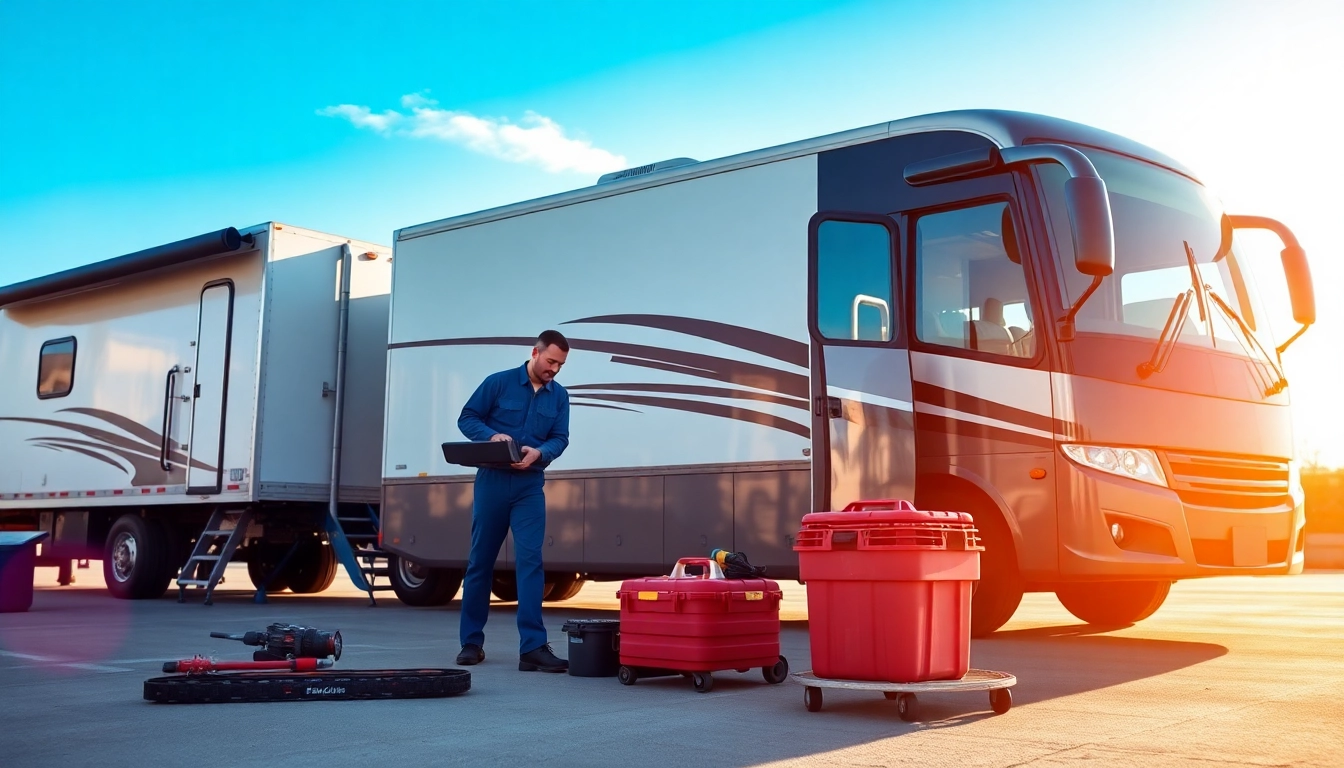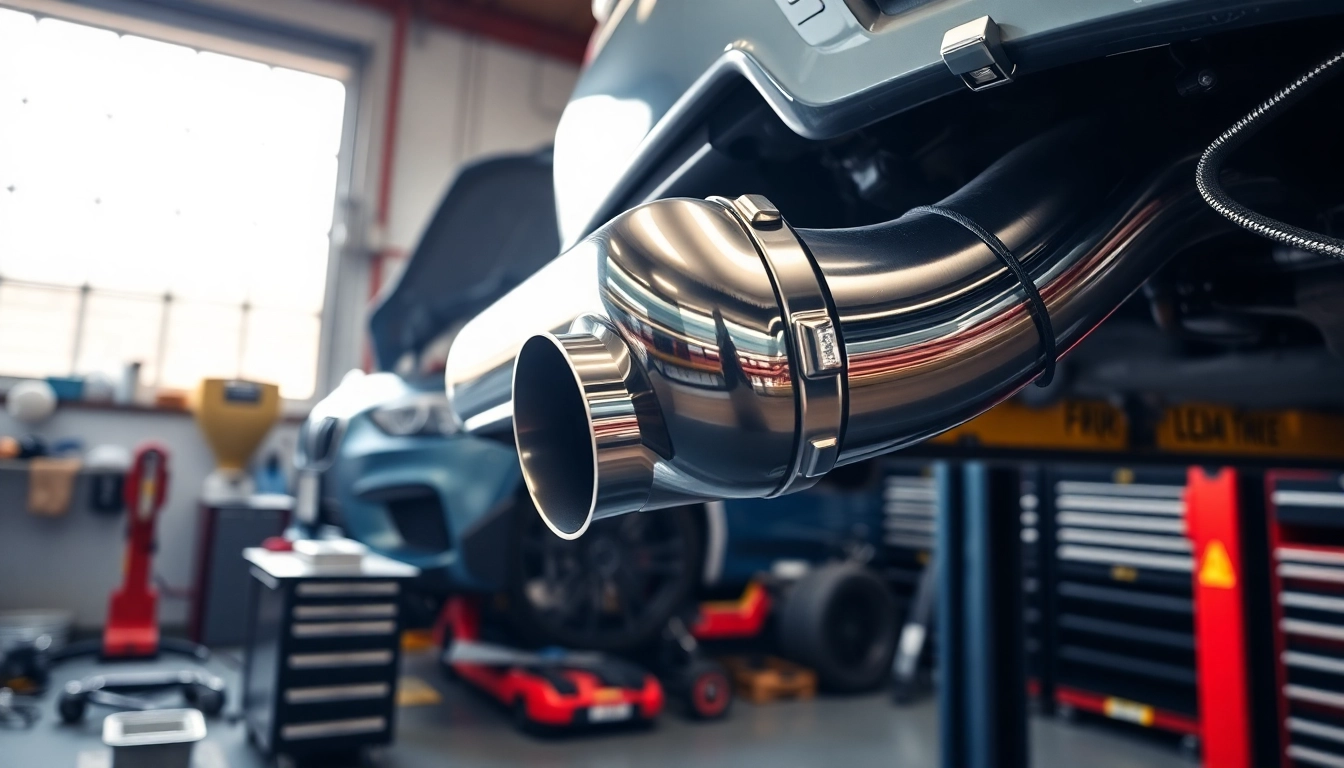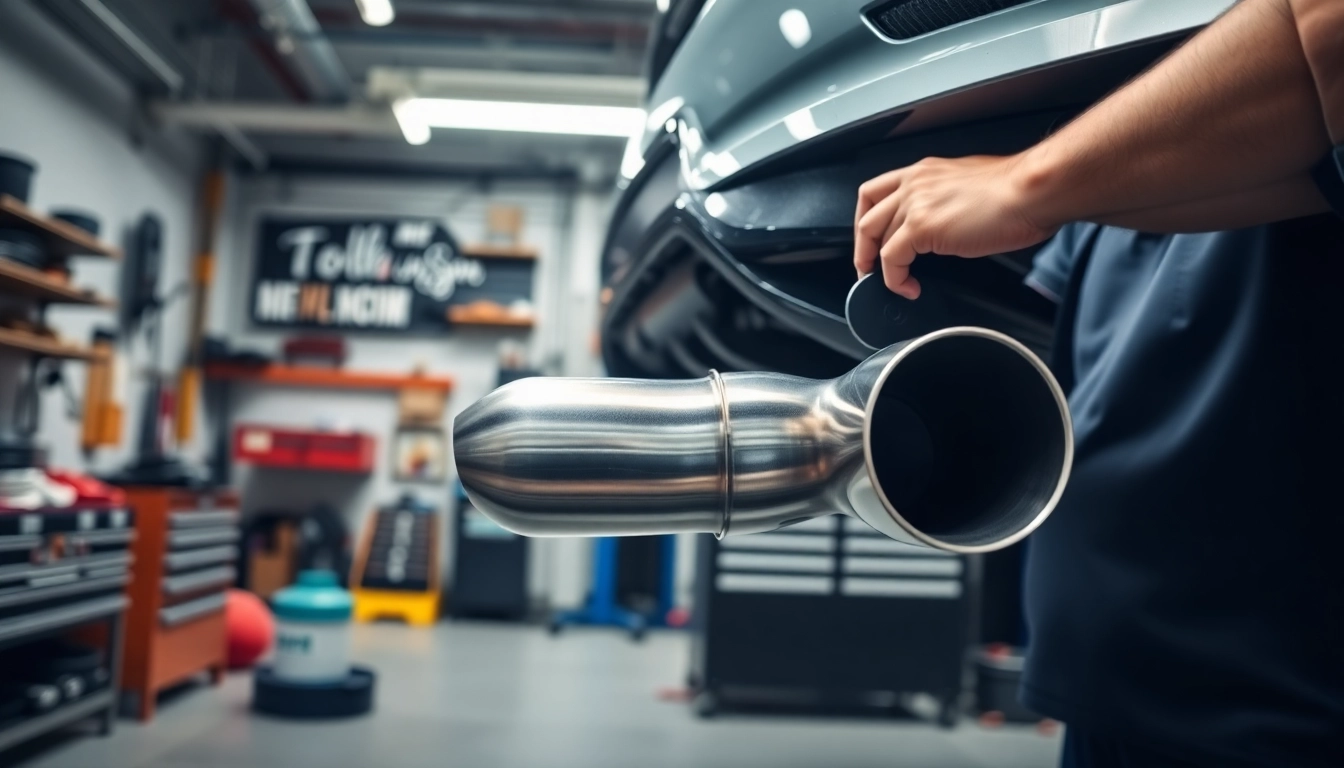
Understanding Mobile Mechanic Services
In today’s fast-paced world, having reliable transportation is crucial for both individuals and businesses. This is particularly true for those who rely on trailers and buses to transport goods or passengers. A breakdown can lead to significant delays and financial loss. This is where mobile mechanic for trailers and buses services come into play. They offer convenient, on-site repair solutions that can save time and provide peace of mind.
What is a Mobile Mechanic?
A mobile mechanic is a professional who travels to a customer’s location to perform vehicle repairs and maintenance. This service is especially beneficial for trailers and buses that are often difficult to transport to a traditional repair shop. Mobile mechanics come equipped with the necessary tools and parts to handle a wide variety of mechanical issues right at the site where the vehicle is parked. They can perform everything from minor repairs to major overhauls, making them a versatile solution for vehicle owners in need of immediate assistance.
Benefits of Mobile Mechanics for Trailers and Buses
The advantages of hiring a mobile mechanic are numerous, particularly for trailers and buses:
- Convenience: Mobile mechanics come to your location, which eliminates the need to tow the vehicle and reduces downtime.
- Time-Saving: Repairs can be performed quickly, minimizing disruptions to schedules, especially for businesses that depend on their vehicles.
- Cost-Effective: Many mobile mechanics operate with lower overhead costs, which can lead to more competitive pricing.
- Comprehensive Services: They offer a range of services from diagnostics to repairs, ensuring that most needs can be met on-site.
How Mobile Mechanics Operate
Mobile mechanics typically operate through a straightforward process:
- Contact and Diagnosis: Customers reach out via phone or online to describe the issue. The mechanic may ask clarifying questions to understand the problem better.
- On-Site Visit: After scheduling an appointment, the mechanic travels to the vehicle’s location with the necessary tools and parts.
- Evaluation and Repair: Once on-site, the mechanic conducts a thorough inspection, provides a diagnosis, and proceeds with the necessary repairs.
Common Trailer and Bus Issues
Trailers and buses are subject to a range of potential issues due to their heavy usage and specific operational demands. Understanding these issues can help vehicle owners take preventive measures and know when to seek help from a mobile mechanic.
Mechanical Problems in Trailers
Mechanical issues in trailers often arise from wear and tear over time and can include:
- Brake Problems: Trailers often experience brake issues due to heat buildup during heavy usage. Regular inspections are essential.
- Axle Issues: Bent or damaged axles can lead to serious stability problems; mobile mechanics are well-equipped to address these swiftly.
- Tire Wear: Uneven tire wear or blowouts can be dangerous; it’s advisable to have tire pressure checked regularly.
Electrical Issues in Buses
Electrical problems in buses can lead to operational disruptions and safety risks. Common issues include:
- Battery Failures: A dead battery is one of the most common problems; mobile mechanics can troubleshoot and replace batteries on-site.
- Lighting Issues: Faulty headlights or tail lights can create safety hazards; mobile technicians can replace bulbs and wiring.
- Starter Motor Problems: If the bus doesn’t start, the problem often lies with the starter; mobile mechanics can quickly assess and resolve this issue.
Seasonal Maintenance Tips
Proper maintenance can help prevent many of the common issues faced by trailers and buses. Here are seasonal tips to consider:
- Winter: Check antifreeze levels and battery condition to ensure reliable starting and operation in colder temperatures.
- Spring: Inspect tires for wear and ensure that brakes are functioning well after exposure to winter conditions.
- Summer: Monitor cooling systems to prevent overheating, especially during long hauls.
- Fall: Prepare for winter by sealing any leaks and checking wipers and lights.
Choosing the Right Mobile Mechanic
Selecting the right mobile mechanic is crucial for ensuring quality service and reducing future headaches. Here are some key factors to consider:
Factors to Consider When Hiring
When looking for a mobile mechanic, consider the following:
- Certifications: Ensure the mechanic is certified and knowledgeable about trailers and buses.
- Services Offered: Check if they provide the specific services you need—ranging from basic maintenance to complex repairs.
- Availability: A reliable mechanic should be available on short notice, especially for emergency repairs.
Reading Reviews and Testimonials
Customer feedback is an invaluable resource when selecting a mobile mechanic. Look for:
- Consistent Positive Feedback: A history of satisfied customers is a strong indicator of quality service.
- Response to Criticism: How a mechanic handles dissatisfied customers can reveal their commitment to customer service.
Comparing Prices and Services
It’s essential to compare quotes from different mechanics, but remember that the lowest price isn’t always the best option. Consider the range of services provided and any guarantees or warranties offered on repairs.
Cost of Mobile Mechanic Services
Understanding the cost of mobile mechanic services is key to budgeting repairs properly. Prices can vary based on location, complexity of the repair, and mechanic expertise.
Average Costs Explained
On average, mobile mechanics charge anywhere from $50 to $100 per hour depending on their experience and the services provided. In areas with higher living costs, rates can be even higher.
How to Get Estimates
To get accurate estimates, contact multiple mobile mechanics with a detailed description of your issues. Many will provide free quotes, but be clear about what is included to avoid hidden fees.
Is It Cheaper than Traditional Shops?
Generally, mobile mechanics can be less expensive than traditional repair shops. They have lower overheads, which allows them to pass savings onto customers. However, the ultimate cost will depend on the specific service and location.
Maximizing Your Mobile Mechanic Experience
To get the most out of your mobile mechanic visit, follow these tips:
Preparing for Your Mobile Mechanic Visit
Before the appointment, gather any relevant information about the vehicle’s history, previous repairs, and symptoms you’ve observed. This will help the mechanic diagnose the problem accurately.
Essential Tools Every Mechanic Should Have
A reputable mobile mechanic should arrive with a comprehensive set of tools, including:
- Diagnostic equipment to pinpoint issues.
- Basic hand tools for repairs, such as wrenches and screwdrivers.
- Replacement parts for the most common repairs, like light bulbs, fuses, and brake pads.
Follow-up Maintenance and Support
After service, it’s important to maintain communication with your mechanic. Regular follow-ups ensure that any emerging issues can be addressed promptly, helping to prolong the lifespan of your trailers and buses.







